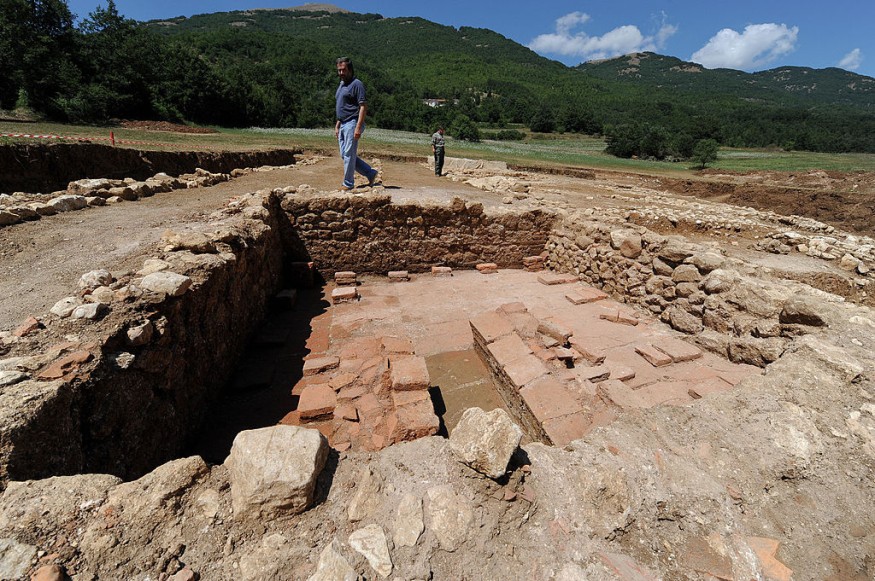An ancient Roman odeon was discovered by archaeologists at a remote archaeological site in the island of Crete, Greece. The odeon was likely used by Romans and their guests for various events like city council meetings, lectures, and musical contests, as well as theatrical performances. The archaeological team found the rare Roman structure in the ruins of the town of Lissos, situated in Southwest Crete.
Ancient Roman Odeon

According to Live Science, archaeologists have not investigated Lissos for several decades and since the said archaeological remains are only accessible by sea travel or a long hike. It is due to this isolation that the site has been overlooked. However, a new archaeological work at Lissos unearthed the odeon, which is equivalent to a modern auditorium where people can present in front of an audience.
The function of the odeon was confirmed to Live Science through email by Katerina Tzanakaki, the deputy head of the Department of Prehistoric and classical Antiquities and Museums at the Ephorate at Antiquities of Chania.
Previous studies have shown that Lissos was inhabited long before its name became known in history books during the 4th century B.C. This is likely due to the fact that the ancient Crete town is located across the Mediterranean Sea. From Cyrene, an ancient Greek city in what is now Libya, likely entail that Lissos was a significant stop for travelers passing the Mediterranean routes.
Unexpected Excavations
The first phase of the odeon's excavation is when Tzanakaki and her team finding part of the stage, with 14 rows of seats and two vaulted side chambers. The ancient Roman theater dates back to the height of the Roman Empire between 1 A.D. to 4 A.D., a time when the sanctuary to the Greek god of medicine and hero Asclepius at Lissos was converted into a political center with a new mosaic center.
The Hellenic Ministry of Culture and Sports stated that for the first time after 62 years an excavation was carried out, leading to the discovery of a large part of a public building and in the form of a conservatory or parliament building. The Greek government department also highlighted that the excavation is part of a project to advocate and protect the archaeological site of Lissos, in Chania.
The Greeks and Romans
Historical literature suggests that there is a resemblance between the culture and religion between the Greeks and Romans. This is because Greece did not decline as a culture but rather was adopted and spread not only by the Romans but also the Macedonians, with the latter led by Alexander the Great.
In particular, the Greek's literature and theater was a significant aspect of Greek culture and it influenced modern drama, which can be seen to have integrated by the Roman Empire and several other civilizations, according to Khan Academy.
Following the discovery of the ancient Roman odeon in Crete, which is located south off the Greek mainland, shows the extent of the Roman Empire and how it continued an aspect of the ancient Greeks, who reportedly fell around 3,200 years ago due to an apparent drought.
© 2025 NatureWorldNews.com All rights reserved. Do not reproduce without permission.





